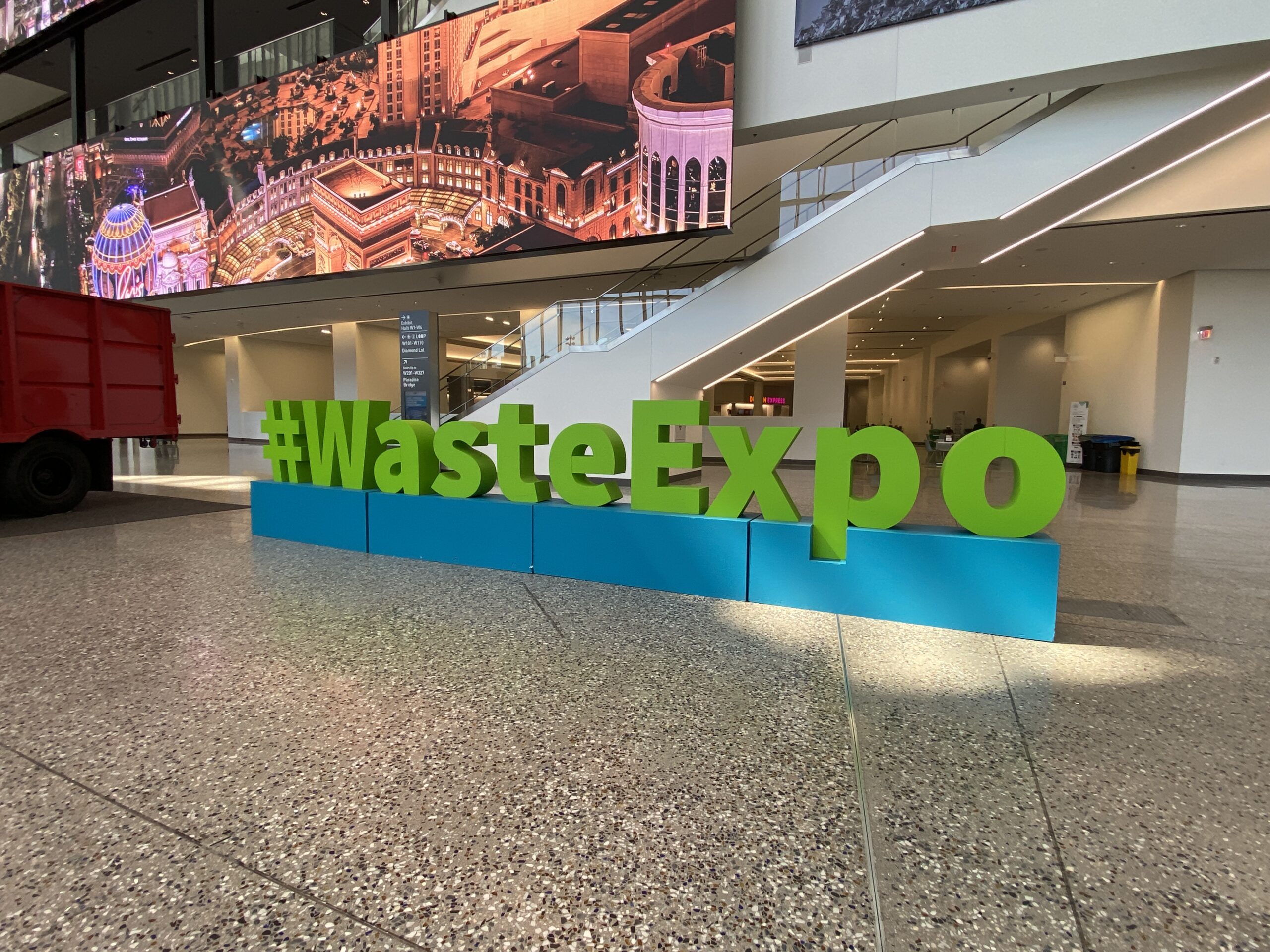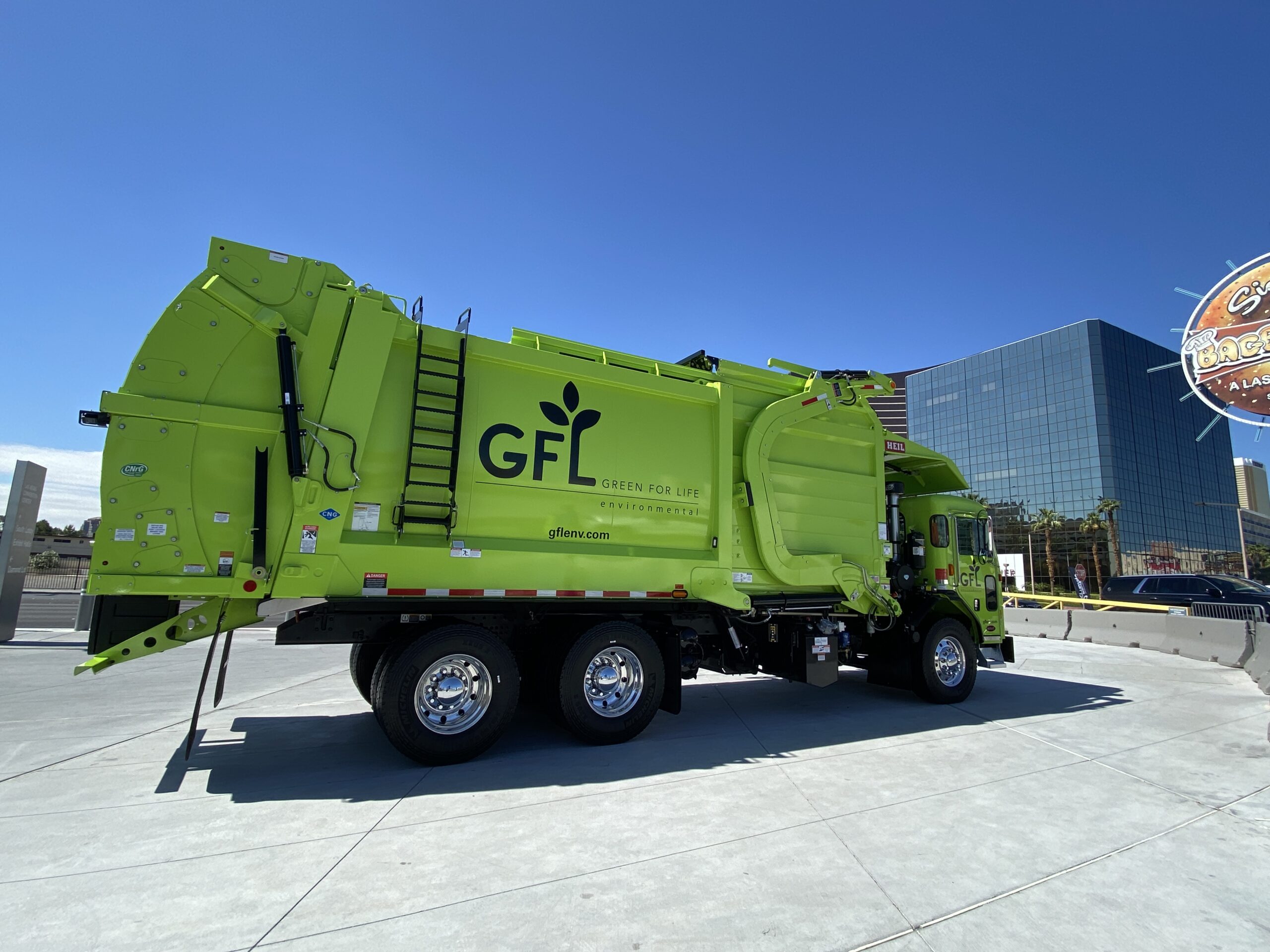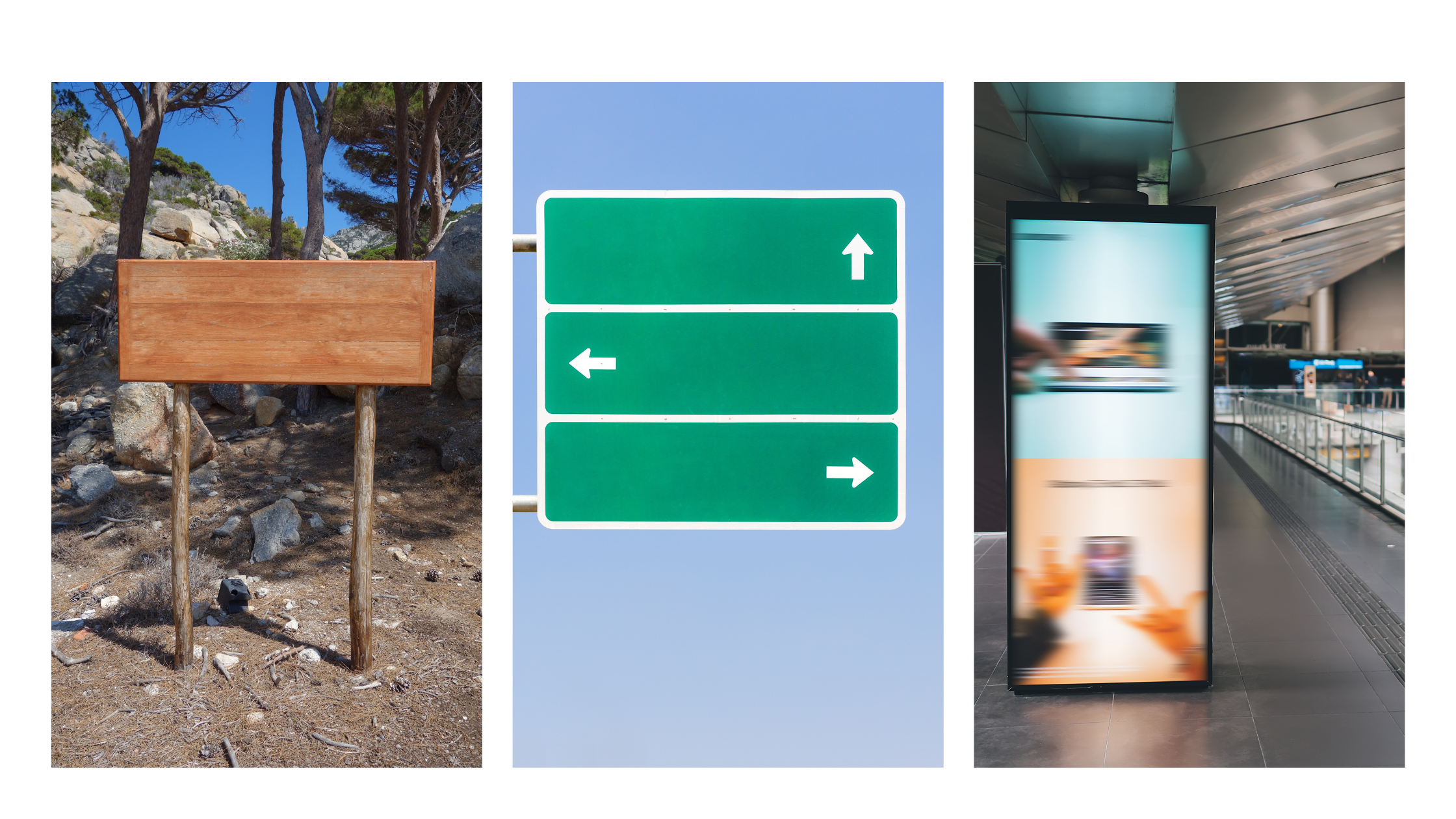What could be more fun than spending an afternoon learning about trash? Aside from being a little bit, stinky, touring the Athens Services MRF (Materials Recovery Facility) was actually a fascinating and eye-opening experience. We know that a circular economy would be better for the planet and that creating landfill diversion strategies is better than the linear disaster Annie Leonard outlined in her famous YouTube short The Story of Stuff, but to actually see companies undertake the circular approach is both inspiring and a relief.
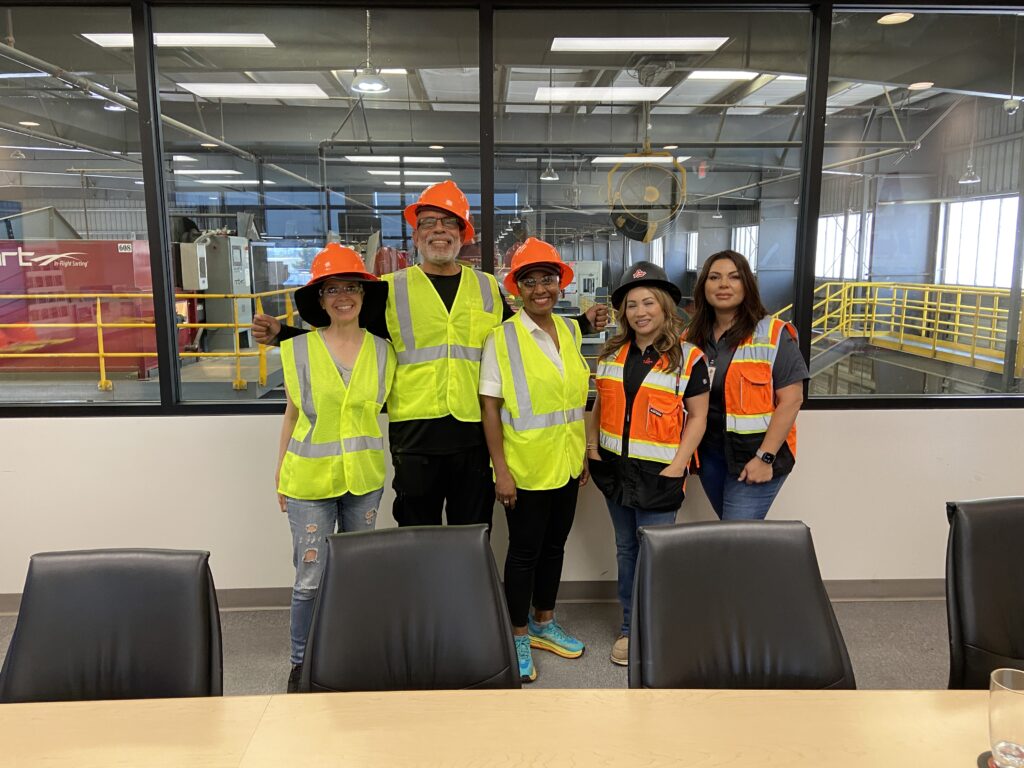
Often I’ve had vendors in the trash hauling and dumpster community tell me that recycling is not a thing. “I’ve been to these refuse sites,” they swear, “and there’s no recycling going on. It’s all a sham.” We’re here to tell you that that’s not true. What is true, however, is that recycling and composting is often confined to the bigger franchise haulers who have government contracts and can afford the infrastructure and personnel to accommodate the technological capabilities and manpower to separate trash, bundle it, and sell those bundled materials to companies who then repurpose them into new products.
Case in point: the Athens Materials Recovery Facility we visited cost $50 million to build. Their bigger plant in Irwindale? $100 million.
Atlanta, by contrast, which does not have a franchise system, is a free market open to any hauler. They city has only one compost facility (the second being two miles south in the city of Dublin), only recycles glass at once facility, and doesn’t have the same kind of infrastructure for materials separation. Sometimes your tax dollars do actually work.
At the start of our tour, the operations manager showed us a video showing the process by which trash is brought to the facility, sorted, and repackaged. First the trucks pass through radioactive sensors several times to make sure there is no hazardous material on the truck. Any traces of radioactivity call for the truck to be taken out of commission until the radioactivity dissipates to sanctioned levels. If the truck is clean, it is driven into a giant warehouse where it dumps its load into piles that bring to mind the towers of trash depicted in the Pixar animated film Wall-E.
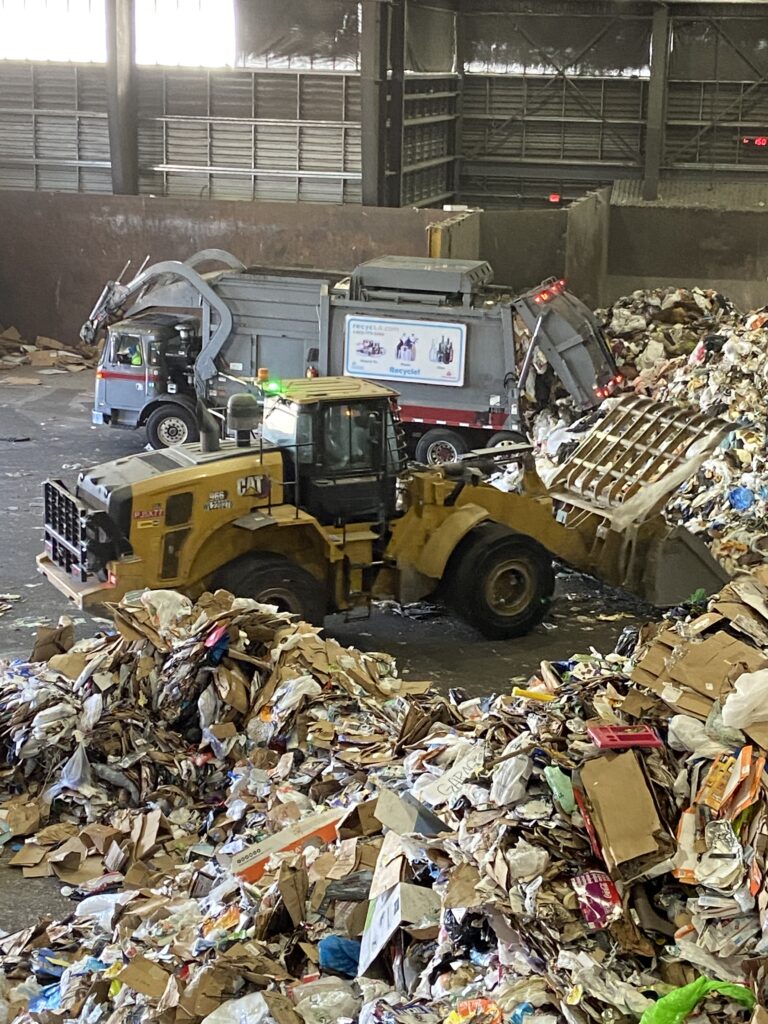
A tractor truck then shoves the piles of garbage towards the mouth of the sorting machine which is in the far corner. The more trash comes in, the more the truck shoves and piles.
On an existential note, the more I looked at this warehouse full of trash, the more minimalism and zero waste appealed to me. As exciting as it is that Athens is leading the way on landfill diversion, it’s still a bit depressing to see ALL. THAT. GARBAGE. As Jerry Seinfeld once noted, everything in your home is on the way to becoming waste. Events are more fleeting versions of this and enormous waste generators.
Next up, the garbage gets channelled along conveyor belts and up a mountain of spinning black rubber disks that separate out cardboard and paper. Heavier items sink below and lighter items get tossed up. As the trash moves along various conveyor belts, it goes through various sorting mechanisms: magnets collect metals like aluminum, a density blower redirects plastic, glass is diverted to be crushed. Optical sensors differentiate plastic types and sort them into designated bins (as does a giant, Terminator-like, artificially intelligent run mechanical arm, a prototype being tested and most likely the wave of the future).
Throughout the plant, individual sorters stand aside the the conveyor belts and pick out trash. (I saw signs around the warehouse recommending 15-30 trash picks per minute which brought to mind the factory scene in Charlie Chaplin’s Modern Times.) At the end of the line were stacks of giant bricks of separated material that get sold in the recycled materials market to create more goods. According to the plant manager, Athens has a separate location with composting pits for organic material. For materials that cannot be recycled, they have trucks that go to landfills.
The most encouraging part of our tour was that their model is becoming contagious. Trash management companies from other states and other countries have come to their facilities to mimic what they do. Then maybe cities like Atlanta will have sites that can handle compost and glass and circular waste streams will be a thing of today instead of something to aspire to tomorrow.
PopUP CleanUP can help your event create a comprehensive waste management plan for your event, incorporating recycling and landfill diversion strategies.
